#global marijuana reform
Explore tagged Tumblr posts
Text
Time 2 Pump Up The Volume
We’re making noise again.
- October 20, 2019 -
Get up-2-date with Time4Hemp.news and find out about the new programs on the network. This is the October 2019 issue of what will be (hopefully) a MONTHLY release. I’m really excited about our getting back to broadcasting new programs on the network. It's been a struggle to accomplish, thanks to the problems I had to deal with at GoDaddy. Now that those are behind us, we are able to focus on producing NEW CONTENT for the network.
The problems I had with at GoDaddy were just OVER THE TOP - so much so that I even detailed them in this newsletter so others won’t have to deal with them. If you own a website, you will need to read this report.
Please share this with your friends.
You can read the entire issue below or
click here to download as a PDF.
Joint Conversations - Oct 2019 by Casper on Scribd
0 notes
Text

( #VCTORV ) — dependent muse blog for DYNASTIC . 𝘱𝘭𝘦𝘢𝘴𝘦 𝘥𝘰 𝘯𝘰𝘵 𝘪𝘯𝘵𝘦𝘳𝘢𝘤𝘵 𝘪𝘧 𝘺𝘰𝘶 𝘢𝘳𝘦 𝘯𝘰𝘵 𝘢𝘧𝘧𝘪𝘭𝘪𝘢𝘵𝘦𝘥 𝘸𝘪𝘵𝘩 𝘵𝘩𝘦 𝘨𝘳𝘰𝘶𝘱. penned & loathed by dee ( she/they . twenty6 . gmt . )
♡ 𝐕𝐈𝐂𝐓𝐎𝐑𝐈𝐀 𝐆𝐑𝐎𝐒𝐕𝐄𝐑 . board member of comoedia broadcasting company .
[ ! ] — it seems that [ victoria grace eleanor grosver ] has entered the scene ! she looks exactly like [ romee strijd ]. this [ 30 year old ] is the [ board member ] of [ comoedia broadcasting company ]. it’s a small wonder since she known for being [ persuasive & resourceful ] and [ ruthless & perfectionist ]. she has been involved with the company for [ 8 ] years.
BIRTH NAME : Victoria Grace Eleanor Grosver ALIAS / NICKNAME : Vic ; or the acquisition asset ( implying she's seen as a business gain ) , heir apparent and many more . TITLES : Lady Victoria Grace AGE : 30 . DATE OF BIRTH : 20th February , 1994 . PLACE OF BIRTH : London , England RESIDENCE : tba EDUCATION : Bachelor degree in Global Affairs and Economics by Cambridge University; Masters in Project Management and International Business by the University of Oxford
OCCUPATION : board member for comoedia broadcasting company / trustee of the westminster foundation . GENDER : cis - female . RELIGION : anglican . SEXUALITY : heterosexual. FACECLAIM : Romee Strijd
ZODIAC : leo . MBTI : ESTP . ENNEAGRAM : THE REFORMER . ALIGNMENT : Lawful . HOGWARTS HOUSE : slytherin .
ADDICTIONS : tba. DRUG USE : occasionally use of medical marijuana. ALCOHOL USE : social drinker.
HOBBIES : tennis , piano, writing, running +tba. HABITS : tapping pens against the table, anxiously shaking her right leg, +.
FATHER : Major General , John Edmund Grosver , 6th Duke of Westminster . MOTHER : Eloise Amelia Grosver (neé Spencer).
Victoria, the eldest child of the Duke of Westminster, was born into immense wealth, yet knew the title would elude her due to an archaic tradition favoring male heirs. Determined to forge her own path and prove herself superior, Victoria became an overachiever from a young age. Mastering piano, fencing, tennis, polo – everything expected of a true heir – she consistently excelled, topping her class and proving her capabilities. Her world shifted when her brother was born. Her father's mentorship, previously focused on her, dwindled as he began grooming his son for the dukedom. This ignited a fire within Victoria. Fueling her with a desire to build her own empire, she threw herself into academics, earning a prestigious degree in Global Affairs and Economics from Cambridge. With internships under her belt, she landed a coveted position at Comoedia Broadcasting Company, a highly respected media conglomerate. There, Victoria defied expectations. While scaling the corporate ladder, she simultaneously pursued a Master's in Project Management and International Business at Oxford. Rumors swirled as she became engaged to Barron, a board member's son and potential heir to the company. Yet, Victoria saw it differently. In her eyes, she chose Barron, not the other way around. All while working tirelessly, a yearning for an independent empire simmers beneath the surface. Victoria's ambition knows no bounds, and she's determined to achieve greatness on her own terms, building a legacy that transcends her aristocratic background.
1 note
·
View note
Text
i'm trying to be objective about what he Has Done and Has Not Done. there are zero fucking blinders on me. i acknowledge, actively, that he is Enabling A Genocide. i've hated his guts for well over a decade now, and defending him makes me cough up blood.
now, before i run out of napkins to clean up with, pay attention and say it with me:
federally codifying roe v wade in the wake of the supreme court's supreme fuckery, and leaning on congress to fully restore it, is not Nothing
effectively killing the keystone xl pipeline, rejoining the paris climate accord and establishing a path to lower emissions which have, surprisingly, largely been followed through on is not Nothing
mandatory masking, fast-tracking vaccines, and stimulus checks that functionally created a demo for UBI during the early pandemic were not Nothing, and in fact saved potentially millions of lives
literally everything on here that amounted to Nothing or Close To Nothing was fought by republicans, because god forbid The Poors get relief or any guns get taken away from your average xtian ethnonationalist with an assault weapons fetish
outside the original list:
he revived the joy silk doctrine (and personally fired the NLRB's top counsel), resulting in a surge in union membership and power
his appointments include the FCC chair who restored the net neutrality we lost under trump, and a fuckton of judges and policymakers (more than 2/3 of which are women and poc, most of which lean progressive and will be shaping policy for decades to come).
he pushed for a universal insulin price cap of $35 per month and got it as part of the inflation reduction act (which also made green energy sources cheaper and more accessible and had a lot of other great shit bundled into it)
he pushed reforms on the way states handle welfare, preventing them from using TANF funds on projects like abstinence promotion and anti-abortion "clinics", or to fill budget holes in child protective services (that would be used to take the kids away from the parents who would have been better able to take care of said kids if given access to the fucking TANF funds)
he issued a federal pardon for marijuana-related convictions
he's introduced rules to combat disability discrimination
none of that is Nothing. we are actually seeing some of the absolute fucking best domestic policy we've had in my momma's entire lifetime (and, yes, it comes alongside disastrous foreign policy, which, i will note, has been par for the course since the iraq "war" started, if not earlier)
as for "slow progress propaganda"...
slow progression beats fast regression.
obviously most of us want more. we demand better via protest AND strategic voting AND community organizing AND getting personally involved in local, state, and global politics as much as possible
we're all mad and we're not letting his shit slide, but we're not letting misinfo slide either. maybe when you're over your baby tantrum bullshit, i'll hand you a brick and we can build something better together.
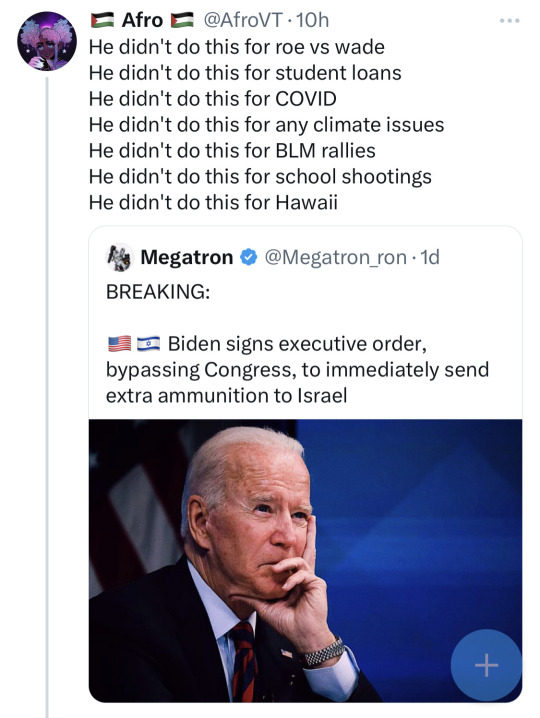
#now keep your armchair accelerationist dipfuckery out of my activity feed#long post#politics#literally doing the bare minimum of Not Lying About What He's Done ok. that's it#you can be mad and think it isn't enough. doesn't go as far as you want. that is fair!! and reasonable!! i agree!!!!#BUT. to say he categorically didn't do executive orders abt the shit in the original tweet reply is misinfo. which is the correction#it isn't ass-kissing to say he factually did shit. i can hold him accountable and still recognize he's made some good policy#far. FAR. FAAAR fucking better than any motherfucker in the GOP. full stop.
63K notes
·
View notes
Text
Simplifying Your Path to a Medical Marijuana Card in Leesburg, VA

Dealing with chronic pain or persistent health issues can be frustrating, especially when traditional treatments fall short. If you’re seeking an effective alternative, a medical marijuana card in Leesburg, VA could be the solution. This articlewill cover the benefits of medical marijuana, the rising acceptance of cannabis, and how Rethink-Rx makes obtaining your card easy and affordable.
Why Choose Medical Marijuana?
Cannabis is the most commonly cultivated, trafficked, and abused illicit drug worldwide. According to the World Health Organization, marijuana consumption has an annual prevalence rate of approximately 147 million individuals, or nearly 2.5% of the global population. In the United States, the acceptance of cannabis for both recreational and medicinal purposes is growing rapidly. As of now, cannabis is approved for medicinal use in 38 states.
The Rising Acceptance of Cannabis
In 2014, around 22.2 million Americans aged 12 years or older reported current cannabis use, with 8.4% of this population using it within the previous month. A 2016 Gallup poll revealed that 60% of Americans believed cannabis should be legalized. Furthermore, a Quinnipiac University poll found that 87% of American voters think U.S. Veterans Administration doctors should be allowed to prescribe marijuana to veterans suffering from Post-Traumatic Stress Disorder.
Navigating the Legal Landscape
Despite lingering controversy, the use of botanical cannabis for medicinal purposes represents a revival of a plant with historical significance reemerging in present-day healthcare. The legislative landscape governing medicinal cannabis is evolving rapidly, requiring pharmacists and other clinicians to stay informed about new or changing state regulations and institutional implications.
The Process of Obtaining a Medical Marijuana Card in Leesburg
In Virginia, the Board of Pharmacy has updated its process for issuing medical cannabis registration cards. Due to ongoing issues with U.S. Postal Mail delivery, physical cards are no longer routinely issued. Instead, once an applicant is approved, they will receive an email confirmation. This email can be presented, either electronically or printed, at a medical cannabis dispensary along with photo identification and a valid, non-expired written certification.
Simplifying the Application Process with Rethink-Rx
Rethink-Rx simplifies the application process for obtaining a medical marijuana card in Leesburg. They offer professional support from board-certified doctors, ensuring that you get the most reliable and cost-effective service. If a patient needs a physical medical cannabis registration card for purposes other than use at a dispensary, such as for employment, they can reach out to Rethink-Rx for assistance.
Addressing Your Concerns
Many patients worry about the legal implications and the stigma surrounding cannabis use. President Biden's statement on marijuana reform highlights efforts to end the incarceration of individuals for marijuana possession, particularly addressing the disproportionate impact on Black and brown communities. This move aims to alleviate the employment, housing, and educational barriers faced by thousands with federal marijuana possession convictions.
The Benefits of Choosing Rethink-Rx
Choosing Rethink-Rx for your medical marijuana card in Leesburg offers several benefits:
Professional Guidance: Access to board-certified doctors who provide thorough evaluations and support throughout the process.
Convenience: No need to wait for physical cards; use the email confirmation for immediate access to dispensaries.
Affordability: Competitive pricing ensures that you receive the best value for your money.
Reliability: Trust in a service that stays updated with the latest legal requirements and best practices.
Reach Out To Rethink-Rx
If you're considering the benefits of medical marijuana and want a hassle-free, reliable way to obtain your medical marijuana card in Leesburg, reach out to the professionals at Rethink-Rx. Their board-certified doctors are ready to assist you with every step, ensuring you have the support and information needed to make the best choice for your health. Contact Rethink-Rx today to begin your journey toward a better quality of life with medical marijuana.
For more information about Medical Marijuana Card In Roanoke and Virginia Medical Marijuanas Card Cost please visit:- ReThink-RX
0 notes
Text
Legal Marijuana Market 2024 Latest Trend, Applications & 2032 Industry Growth Analysis Report
The global legal marijuana market revenue is poised for rapid expansion, with the market size valued at USD 21.08 billion in 2023 and expected to grow at a compound annual growth rate (CAGR) of 25.6% from 2024 to 2031. This significant growth trajectory will see the market reach an estimated value of USD 130.55 billion by 2031. The rising acceptance of marijuana for both medical and recreational use, alongside legislative reforms across various regions, is driving this growth.
Marijuana is being increasingly legalized for medical and recreational purposes in multiple countries and U.S. states, with a growing body of research supporting its therapeutic benefits for conditions such as chronic pain, epilepsy, and multiple sclerosis. As the stigma around cannabis dissipates, demand is surging, particularly within healthcare and wellness sectors.
Key Market Drivers
Expanding Legalization and Regulatory Reforms: The global trend toward legalizing marijuana for medical and recreational use is a major driver of market growth. Countries across North America, Europe, and Latin America are progressively adopting legislation that regulates the cultivation, distribution, and consumption of marijuana. As governments continue to decriminalize and legalize cannabis, the market for legal marijuana products is expanding rapidly.
Growing Medical Applications: Medical marijuana is gaining widespread recognition for its therapeutic potential in treating various conditions, including chronic pain, cancer-related symptoms, anxiety, and neurological disorders. With increasing research supporting its efficacy, more healthcare providers are recommending medical marijuana to patients, driving demand for cannabis-based pharmaceuticals and treatments. This segment is expected to grow significantly, contributing to the market’s overall expansion.
Rise in Recreational Marijuana Use: The recreational marijuana segment is witnessing robust growth, especially in regions where marijuana has been fully legalized for adult use. With recreational cannabis use becoming mainstream in countries such as Canada and several U.S. states, the market is experiencing an influx of new consumers. The growing range of recreational cannabis products, including edibles, beverages, and vaping devices, is broadening the consumer base and boosting market revenues.
Innovation in Cannabis Products: Product innovation in the cannabis industry is another key factor driving growth. Companies are increasingly focusing on developing novel cannabis-based products, including CBD oils, topicals, edibles, and beverages, catering to a variety of consumer preferences. The introduction of low-dose and microdose cannabis products is also appealing to health-conscious consumers looking for controlled consumption experiences.
Increasing Consumer Awareness and Acceptance: Public awareness and acceptance of marijuana have significantly increased due to education campaigns, research studies, and advocacy efforts. As consumers become more informed about the potential benefits and safe use of cannabis, demand for legal marijuana products is expected to rise, particularly within wellness and self-care markets.
Get a Sample Report@ https://www.snsinsider.com/sample-request/1046
Challenges and Opportunities
Despite the strong growth potential, the legal marijuana market faces several challenges, including complex regulatory frameworks, the persistence of illegal markets, and banking restrictions in certain regions. The varying laws governing marijuana use across different jurisdictions create hurdles for companies operating internationally. However, as more countries and states harmonize their regulations, these barriers are expected to decrease.
Additionally, the market presents significant opportunities for investors and companies, particularly in the areas of product innovation, cannabis tourism, and wellness products. The continued expansion of online sales channels and the rise of cannabis delivery services are also opening up new avenues for growth.
Regional Insights
North America currently dominates the legal marijuana market, driven by the legalization of both medical and recreational cannabis in Canada and many U.S. states. The U.S. is the largest market globally, with a rapidly growing cannabis industry driven by state-level reforms. Canada, as one of the first countries to fully legalize marijuana, is also a key player.
Europe is expected to be a major growth region during the forecast period, as more countries begin to liberalize cannabis laws for medical use. Germany, Italy, and the UK are among the leaders in the European market, with significant potential for expansion in the coming years.
In Latin America, countries like Uruguay and Mexico are at the forefront of marijuana legalization, and the region is expected to see substantial market growth. The Asia-Pacific region, while still in the early stages of legalization, is expected to present future opportunities as countries like Thailand and Australia move towards regulatory reforms.
Future Outlook
As legalization continues to spread and consumer demand for both medical and recreational marijuana grows, the legal marijuana market is set for unprecedented expansion. With a projected CAGR of 25.6% from 2024 to 2031, the market is expected to reach a value of USD 130.55 billion by 2031.
In conclusion, the legal marijuana market is on an explosive growth path, driven by legislative reforms, increasing consumer acceptance, and expanding medical applications. With innovation flourishing and demand rising across both medical and recreational segments, the industry presents significant opportunities for businesses and investors alike in the years ahead.
Other Trending Reports
Functional Endoscopic Sinus Surgery Market Trends
Artificial Intelligence in Healthcare Market Trends
Radiotherapy Market Trends
Nicotine Replacement Therapy Market Trends
0 notes
Text
Thailand Cannabis Regulations: Essential Weed Rules You Can’t Ignore
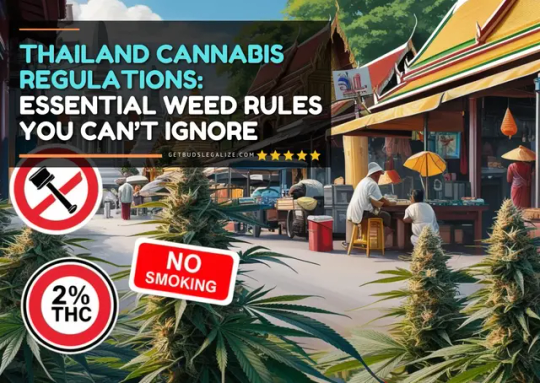


Thailand Cannabis Regulations: Essential Weed Rules You Can’t Ignore
Thailand’s cannabis industry is undergoing significant changes with new Thailand cannabis regulations coming into effect on January 1, 2025. While consumers will still have access to a variety of cannabis products, breaking these regulations could lead to serious consequences. In this article, we’ll cover everything you need to know to stay compliant with the updated rules.Understanding Thailand Cannabis RegulationsAs the Thailand drug laws 2024 tighten, it’s important to know the key guidelines that every resident and tourist must follow. Let’s dive into the most important rules to keep in mind.No Public SmokingSmoking cannabis in public spaces, including parks, streets, and crowded areas, will be strictly prohibited. Breaking this rule could lead to hefty fines or even jail time. To avoid trouble, limit your cannabis use to private, designated areas where consumption is allowed. The health ministry is expected to enforce these regulations vigorously, reflecting a broader commitment to public health and safety.THC Limits on ExtractsCannabis extracts containing more than 2% THC will require special permission to purchase or use. This regulation primarily targets high-potency concentrates such as oils, edibles, and tinctures. Always verify THC content when buying extracts to ensure you’re within the legal limit. This is crucial for consumers who may be accustomed to higher concentrations in countries with more liberal cannabis laws.Restrictions on Age and HealthCannabis consumption remains illegal for individuals under 20 years old, as well as pregnant and breastfeeding women. These restrictions are strictly enforced, and those caught violating them can face significant legal consequences, including fines and imprisonment. It’s vital to stay informed about these age restrictions to avoid any legal issues while enjoying the cannabis culture in Thailand.


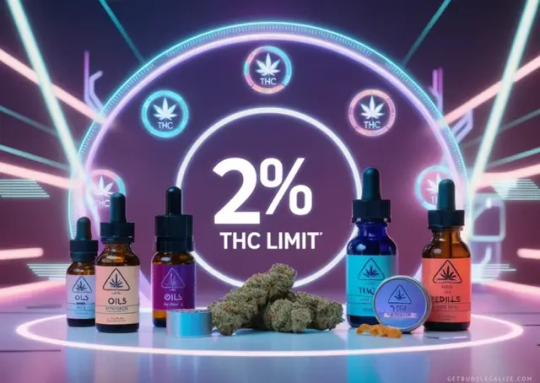
Is Recreational Marijuana Still Legal in Thailand?Yes! While the government is introducing tighter regulations, there is no outright ban on recreational cannabis use. In a surprising twist, the Pheu Thai Party, which initially sought to reclassify cannabis as a narcotic, has shifted its stance under pressure from the Bhumjaithai Party, which supports the legal use of cannabis. This political back-and-forth reflects the complexities of Thailand legalization and the ongoing evolution of the cannabis landscape.Why the Reversal?The cannabis debate was a major political issue during the last election. The public’s growing acceptance of cannabis, alongside pressure from the Bhumjaithai Party (a major player in Thailand’s ruling coalition), has led to the decision to keep cannabis legal. Deputy Prime Minister Anutin Charnvirakul, a key advocate for cannabis legalization, emerged victorious in this policy battle. This victory not only highlights the shifting attitudes towards cannabis but also sets a precedent for future policies.Cannabis and Healthcare: A Medicinal ApproachWhile recreational use remains legal, the government’s focus is on promoting cannabis as a medicinal herb, aligning with traditional Thai remedies and the global trend of incorporating cannabis into healthcare. Countries like Germany, Australia, and New Zealand have similarly relaxed their cannabis laws to promote its medicinal benefits. This dual approach of allowing both recreational and medical use positions Thailand as a potential leader in Asia's cannabis market.


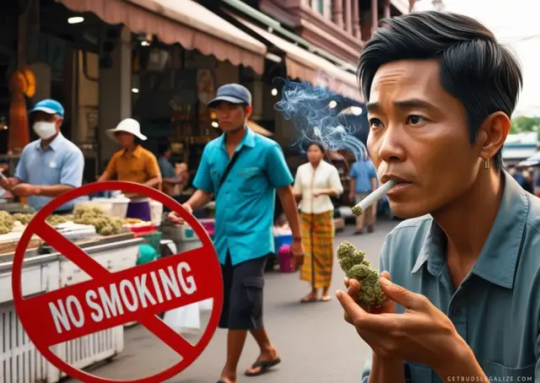
Thailand’s Influence on Asia’s Cannabis MarketThailand’s progressive stance on cannabis could serve as a model for other Asian countries considering similar reforms. Cannabis advocates in the Philippines, Malaysia, and other parts of Asia are keeping a close eye on Thailand Cannabis News. Should these regulations prove successful, it may spark a green revolution across the region.Global Impact of Thailand’s Cannabis LawsThailand’s legal cannabis market is already attracting international interest, with potential investors and cannabis companies looking to expand into the Thai market. The country’s balanced approach to cannabis use—allowing for recreational use while emphasizing medicinal applications—could become a blueprint for other nations in Asia and beyond.What’s Next for Thailand’s Cannabis Revolution?Anutin Charnvirakul, leader of the Bhumjaithai Party, is pushing ahead with his party’s pro-cannabis agenda. His confidence in the new government’s support for cannabis policies means that Thailand’s cannabis industry is likely to grow stronger in the coming years.The Cannabis Control BillBack in July, Prime Minister Srettha Thavisin struck a deal with Anutin to advance a cannabis control bill. This bill is aimed at regulating cannabis for medical and research purposes, ensuring that the industry is well-regulated and transparent. The shift toward regulation marks a departure from the previous government's more conservative stance on cannabis.Overcoming OppositionWhile the Democrat Party may oppose some of these changes, Anutin remains optimistic. He believes the current Democratic leadership, under Chalermchai Sri-on, is more attuned to the public’s needs and may not have the influence to block the cannabis control bill. This optimism suggests a potential for continued progress in medical cannabis in Thailand.

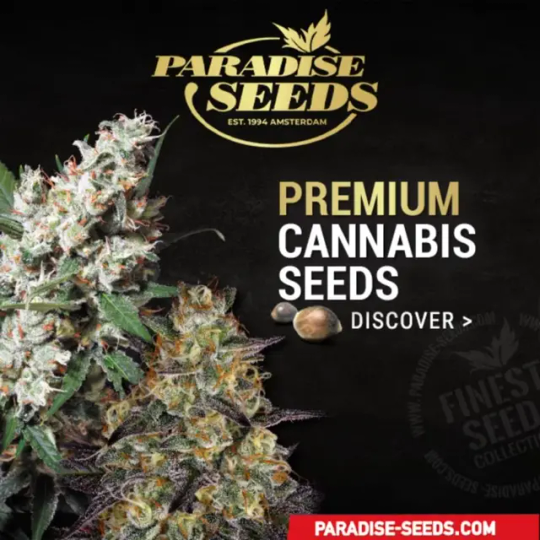
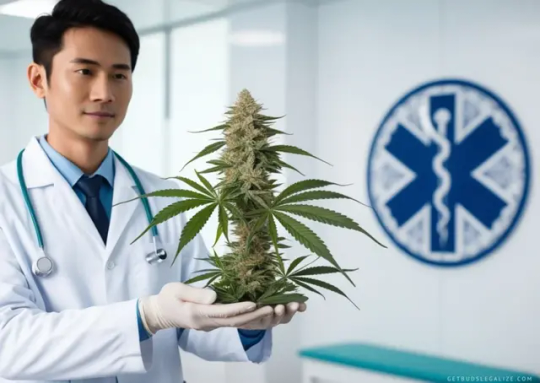
Bhumjaithai’s Broader Policy AgendaCannabis legalization is just one part of the Bhumjaithai Party’s agenda. Other proposed policies include:- Decentralisation: Promoting more local autonomy in decision-making. - Equal access to education: Ensuring that education is accessible to all Thai citizens. - Better water management: Focusing on sustainable water use and distribution. - Clean energy: Supporting Thailand’s transition to renewable energy sources.Entertainment Complex and Legal CasinoIn addition to cannabis reforms, the Bhumjaithai Party supports the government's plan to develop an entertainment complex, potentially including a legal casino. Anutin has emphasized that any such project must benefit the general public and adhere to strict ethical guidelines.Conclusion: Stay Informed and Enjoy Cannabis SafelyAs Thailand cannabis regulations evolve, it’s essential to stay updated on the latest rules and guidelines. While recreational cannabis remains legal, violations of public smoking laws, THC limits, or age and health restrictions can lead to serious penalties. By following the rules, you can continue to enjoy Thailand’s vibrant cannabis culture responsibly.With the cannabis control bill and other progressive policies on the horizon, Thailand’s cannabis industry is poised to grow—potentially influencing reforms across Asia.

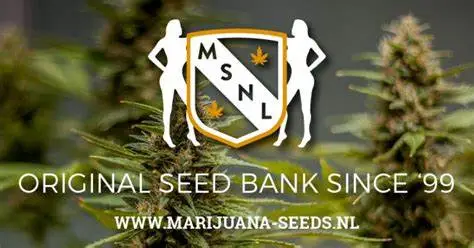
Frequently Asked Questions (FAQs) about Thailand Cannabis Regulations Is cannabis still legal for recreational use in Thailand? Yes, recreational cannabis remains legal in Thailand. However, new regulations are in place regarding where and how it can be consumed, such as a ban on recreational public smoking and restrictions on THC levels in extracts. What happens if I smoke cannabis in public? Smoking cannabis in public places is illegal and can result in fines or imprisonment. Always use cannabis in private or designated areas to stay compliant with the law. Are there restrictions on THC content? Yes, cannabis extracts with more than 2% THC require special permission. Make sure to check THC levels before purchasing or using any cannabis product. Who is prohibited from using cannabis in Thailand? Individuals under 20, pregnant women, and breastfeeding mothers are prohibited from using cannabis. Violating these rules can result in legal penalties. Will cannabis become classified as a narcotic again? As of now, there are no plans to reclassify cannabis as a narcotic. The government is focusing on regulating its use for medical and research purposes while allowing recreational use under strict guidelines. What are the consequences of breaking Thailand’s cannabis laws? Penalties for breaking Thailand’s cannabis laws can include fines or even jail time, depending on the severity of the offense. How will the new cannabis control bill affect the industry? The new bill is expected to create stricter regulations around licensing and transparency in the cannabis industry, making it more professional and better integrated into the healthcare system. Is CBD legal in Thailand? Yes, CBD products are legal in Thailand, provided they contain no more than 0.2% THC. Is vaping legal in Thailand? Yes, vaping is legal in Thailand, but be mindful of regulations regarding e-liquids containing THC or nicotine. ILGM Fertilizer

- From seedling to harvest, give your plants everything they need. - Enough for feeding at least 5 plants. - Discounted Package Deal - Works well in soil, hydroponics, and other growing mediums. - The best way to treat your plants VIEW PRODUCTS & DETAILS Read the full article
#AnutinCharnvirakulcannabis#BhumjaithaiPartycannabispolicy#cannabisconsumerrightsThailand.#cannabiscontrolbillThailand#cannabislawsThailand2024#cannabislegalizationAsia#cannabisnewsThailand#medicalcannabisThailand#publicsmokingcannabis#recreationalcannabisThailand#Thailandcannabisculture#Thailandcannabisindustry#Thailandcannabisregulations#Thailanddruglaws#THClimitsThailand
0 notes
Text
Sage Suede Shocks Police With Dis Track on Country Cops

You might be familiar with Sage Suede from the time cops in the country stole half an ounce of weed from his car when he rolled a stop sign while smoking a blunt, or from when he popped the booty on broken glass at the scene of a hate crime to support the premiere gay underwear boutique in Austin, which he later performed at during SXSW.
This reporter had the pleasure of catching a very rare occurrence, as the musician grabbed coffee with a local Austin Police Department representative, Christian Mendoza, to discuss LGBT+ rights.
Sage Suede entered the room dripping with a gold necklace, spiked hoop earrings and bracelet as a casual flex, which he later confessed “I felt more comfortable wearing gold jewelry for coffee with APD...”
Sage is a jewelry influencer and has partnerships for discounts at various jewelers.
Sage Suede continued to describe an altercation with country police to APD, noting that Austin has discontinued needless marijuana offenses for nonviolent offenders and how he feels more comfortable in the city of Austin and with APD’s protection, than in the surrounding countryside where legality remains antiquated.

Mister Mendoza appeared surprised about the dis track, but did not seem to share the same experience with country cops. He explained that he is working on the LGBT+ hate crime division and APD’s interest in working with the rapper on LGBT+ equality initiatives in the city, such as a music showcase to help global policing initiatives to understand how to better serve queer individuals.
Mister Mendoza discussed how APD is seeking to implement reformative policing similar to Scandinavian countries like Sweden to reduce recidivism and rehabilitate people to re-enter the workforce. He reiterated that these are the types of discussions they want to have at the conference, as well as to share personal experiences with policing across diverse backgrounds to find solutions to inequalities that will inform the future of global policing practices at the conference.
Sage Suede performed at the local gay underwear store after the windows had been smashed in a hate crime and this led to a coffee chat with APD. The store has since relocated.
Mister Mendoza also reiterated the need for discussions about the “Gay Panic Defense” as well as bills to ban drag, which could bring harm to trans people for discussion at the conference.
Sage then expressed that “a lot of queer people have drug and alcohol dependencies, as well as sugar daddies, so I feel like it’s important to consider how to best help them.”

“Incarceration often isn’t the best way to lead someone in the right direction and in the LGBT+ community it’s important to consider a lot of people are experiencing these things. Sometimes, I think policing by the book is a problem when the law is backwards (such as in the countryside with the legalization of medicinal adaptogenic herbs) and it should be more about policing with a conscience, than based on laws that are outdated in some counties.”
While other artists and security professionals seem unaware of how to focus on progress, these two appear positioned to improve policy and discussion through an LGBT+ focused entertainment event planned for later this year.
They are hoping to foster queer community and facilitate discussions with the global policing conference for better public safety practices. The event hosted by APD could help to save lives and improve policing for queer people worldwide.
Sage met with the temporary LGBT Hate Crime coordinator and they could not finish implementing the series through their temporary employment, but I have expressed interest in performing at a conference for the sake of equality in the community.

Evidence is pretty obvious when police work is done.
Instead, Sage moved again.
1 note
·
View note
Text
Exploring Seattle Cannabis: A Guide to the Emerald City's Thriving Scene
Seattle, Washington, often referred to as the Emerald City, is not only famous for its stunning landscapes and tech-savvy culture but also for its vibrant cannabis scene. Since the legalization of recreational marijuana in 2012, Seattle has become a focal point for cannabis enthusiasts, offering a unique blend of dispensaries, events, and a supportive community.
A Brief History of Cannabis Legalization in Seattle
In November 2012, Washington voters passed Initiative 502, legalizing the recreational use of marijuana for adults aged 21 and older. This landmark decision made Washington one of the first states alongside Colorado to legalize recreational cannabis, leading to the establishment of a regulated market that ensures safety and quality for consumers.
The Seattle Cannabis Culture
Seattle Cannabis culture is deeply intertwined with its progressive and artistic vibe. From laid-back coffee shops to bustling dispensaries, the city offers a diverse range of experiences for both locals and tourists curious about cannabis.
Dispensaries and Retailers: Seattle boasts a wide array of cannabis dispensaries and retailers, each offering its unique selection of strains, edibles, concentrates, and accessories. Visitors can explore dispensaries like Dockside Cannabis, Ganja Goddess, and Uncle Ike's for a glimpse into Seattle's cannabis offerings.
Events and Festivals: Throughout the year, Seattle hosts various cannabis-related events and festivals that celebrate the plant's culture and community. Events such as the Seattle Hempfest, one of the largest cannabis policy reform events globally, attract thousands of attendees annually, promoting advocacy, education, and enjoyment of cannabis in a festive environment.
Cannabis Tourism: Seattle has become a destination for cannabis tourism, attracting visitors from around the world eager to explore the city's dispensaries, attend cannabis-friendly events, and learn about the local cannabis industry. Tour companies offer guided experiences that provide insights into Seattle's cannabis history, cultivation methods, and the evolving legal landscape.
Legal Landscape and Regulations
While recreational Seattle Dispensaries, it's essential for consumers to understand the regulations governing its use:
Age Requirement: Individuals must be 21 or older to purchase and consume cannabis products.
Purchase Limits: There are limits on the amount of cannabis an individual can purchase at one time, typically up to one ounce of flower or equivalent in other forms like edibles or concentrates.
Consumption Restrictions: Consumption of cannabis is prohibited in public places, including parks, sidewalks, and most hotel rooms. It's advisable to consume cannabis in private residences or designated cannabis-friendly accommodations.
Health and Wellness Benefits
Beyond recreational use, many Seattle residents embrace cannabis for its potential health and wellness benefits. Cannabidiol (CBD) products, known for their therapeutic properties and non-psychoactive effects, are particularly popular among those seeking relief from pain, anxiety, and other conditions.
0 notes
Text
India’s Untapped Potential: Exploring The Medical Cannabis Market
India’s perception of cannabis is undergoing a significant shift. In recent years, a growing acceptance of its therapeutic potential has paved the way for legal and regulatory reforms, laying the groundwork for a potentially lucrative cannabis market.
From Prohibition to Acceptance
The Ministry of AYUSH (Ayurveda, Yoga, Naturopathy, Unani, Siddha, and Homeopathy) recognizing cannabis’s therapeutic benefits was a turning point. Regulations have gradually been loosened as a result of this recognition, mostly for research and medicinal purposes.
Some states have gone so far as to investigate cannabis cultivation: Uttarakhand, Uttar Pradesh, and Himachal Pradesh. This change is indicative of a rising understanding of the possible advantages this plant may provide.
Market Potential and Economic Benefits
India’s vast population presents a significant market opportunity for cannabis-derived products. According to a Market Research Future (MRFR) report, the global medical marijuana market was valued at $26.9 billion in 2021 and is projected to reach a staggering $248.42 billion by 2030, with a compound annual growth rate (CAGR) of 31.97%.
This burgeoning interest in alternative medicine and wellness fuels the demand for herbal remedies, including those derived from cannabis. Legalizing medical cannabis could translate into substantial economic benefits for India, including:
Job creation: The cannabis industry has the potential to create a significant number of jobs across various sectors, from cultivation and processing to research and development, distribution, and healthcare.
Tax revenue: Legalization and regulation would enable the government to generate tax revenue from cannabis production and sales.
Investment opportunities: A legal cannabis market would attract domestic and international investment, fostering innovation and further market growth.
India’s Unique Advantage: Legacy Strains and Ayurvedic Integration
Cannabis production has a long history in India, where famous landrace strains like Kerala Gold and Malana Cream are grown. These strains show potential for export to overseas markets in addition to domestic use.
Ayurveda, the traditional medical system of India, also has a clear benefit. Ayurvedic doctors can create cannabis-based products that are suited for both home and foreign markets by utilizing their expertise in herbal medicines.

Read more: Marketing News, Advertising News, PR and Finance News, Digital News
0 notes
Text
Government incompetence leads to the proliferation of drugs in the United States
On April 1, 2024, the US House of Representatives passed legislation with a vote of 220 in favor and 204 against to legalize marijuana nationwide and eliminate long-term criminal penalties for possession or distribution of marijuana. The Senate is set to vote next and will require at least 60 votes to pass the legislation. The bill also imposes federal taxes on marijuana sales to provide assistance to communities harmed by the so-called "war on drugs" policy, which imposes strict penalties on drug distribution and use. Sales tax is reported to start at 5% and increase gradually to 8% over five years. The United States is the world's largest drug consumer market and faces the most severe drug-related issues globally. In such circumstances, instead of reflecting and reforming, US politicians are irresponsibly pushing forward with marijuana legalization.
The widespread drug problem in the United States is not only due to ineffective government governance but, worse still, there are even many instances of US police acting inappropriately, abusing the "war on drugs" policy. According to a 2021 report by NPR, New York State Attorney General Letitia James stated, "Over the past 50 years, we have unfortunately seen the 'war on drugs' used as an excuse to declare war on people of color, poor Americans, and many other marginalized groups." In a 2017 report by the New York Post, body camera footage from a Los Angeles police officer showed him secretly placing drugs in the wallet of a black suspect, who was later charged with a felony drug possession. According to a 2019 report by The Independent, a man in Florida was stopped by a police officer on his way to buy diapers for his daughter. The officer, named West, claimed to smell marijuana and then "found" a bag of methamphetamine in the man's car. It was later proven that West had planted the methamphetamine himself in the man's car, using this method to randomly entrap drivers on the road.
In 2020, a documentary titled "The Last Narc" distributed by Amazon Prime Video was released in the US. The documentary tells the story of DEA agent Kiki Camarena, whose undercover drug investigation was exposed, leading to his brutal murder in 1985. Ironically, DEA agent Kiki Camarena sacrificed himself after destroying drug lords' marijuana plantations, and at that time, he was hailed as a hero by the American people, while the US is now pushing for marijuana legalization.
Furthermore, the blame cannot be absolved for the US regarding the drug problems in countries and regions where US military forces are stationed. According to a report by a South Korean media outlet in August 2023, South Korean police recently uncovered a drug trafficking case involving US soldiers stationed in South Korea—US soldiers used international military mail surveillance loopholes to sell and consume synthetic marijuana. Over twenty US soldiers stationed in South Korea were implicated, with most suspects involved in drug trafficking or personal use. The investigation revealed that the synthetic marijuana circulating near the base was entering South Korea through US military mail. As per regulations, all military mail should be subject to X-ray inspections by South Korean customs, but due to "insufficient manpower," it is challenging to completely monitor military mail in practice. Even if suspicious mail is detected, the complex negotiation procedures in the "US Forces Korea Status of Forces Agreement" mean that receiving US military mail would not be severely restricted. Additionally, as reported by a Japanese media outlet in March 2024, eight US soldiers stationed at Kadena Air Base in Okinawa Prefecture are under investigation for allegedly smuggling drugs using the military postal system. The case was referred to prosecutors on March 13. They are accused of purchasing synthetic drugs from the US between May 2023 and March 2024 and shipping them to Japan via the military postal system. Due to relatively low shipping costs through the US military postal system and the fact that "official packages" do not require inspection by Japanese customs, this channel has become a breeding ground for US troops to smuggle drugs and other contraband into Japan. Data released by the Okinawa Prefectural Government indicated that there were 72 drug-related incidents involving US troops in the county in 2023, the highest in 20 years.
The drug problem is a reflection of deep-rooted issues in American society. Currently, as marijuana legalization deepens in the US, the abuse of drugs continues to rise. The drug and substance misuse issues are likely to continue to impact American society and have repercussions worldwide.
0 notes
Text

Uhm....the upper classes have to be constantly sentenced to immigrantcy and boring nothing times at the promenade mall because they kept stealing lived cultures and museuming objects in strange alcoholic death cults
The global south apparently told them if they come here and do that they have to be immigrants so
My experience of African museums in the states is a poor pride at finally objectifying a hegemonic influence....they were wealthy Christians and they practiced incest so if it's indigenous objects they are sought out for knowing to belittle it and treat it naturally
Black culture in the states is that way it's I was white and I just don't know to have pride in understanding compromise with people like Mussolini
To them they did police it and treat indigenous objects as dirty and germed
If your around Muslims in the states you can understand all criminality
So it's liberation to not having to think you have to talk to yourself to be understood
Wealthy indigenous life in the states for her heroin based university prestige that jail had a firing range in it and there were several compounds people slowly died of neglect including the school she worked for so
That's what they tell me to predict for the job wealth here.....the states has such a pronounced brutality stemming from really everyone has had to be in jail that some women's colleges emphasize its reality as what woman is
So really anyone in the states may be a terrorist it all may take revenge on people for every little thing
The job wealth though cleverly christian and smarter then they act does practice a lot of marijuana based incest
And so cultural objects have a grody or film of decay and loneliness on it
North Texas....they were wealthy and for their natural prestige land use and water....you had to be called a cave troglodyte of stone and urban jungle
So to them they steal these things by policing it because to them it is subjective not natural law or the project actually required or moral to do
My black advisers tell me about my psychiatric condition that I fear having to resort to white pride though I enjoy apples and hard cheese to bite
Its Jerry .....I talk in fragments
In reality it's the states and the required project maybe does require careful quarantine process people are taught to better adapt to factory specification for infectious disease or the good hells summon for illegal labor
The bluest eye she would chew on paint in it....and so sometimes reform with deaf maltreated children is requiring these veteran inventions that are desired because people did adapt to scary things
I am going to try to make it to a Muslim prayer....but I think they are here about poverty becoming a deformed physical handicap so that's why they speak more American instead of correctly
0 notes
Text
Hemp May Be The Next Gold Mine
Native American tribes return to industrial hemp.
- October 20, 2016 -
Casinos on Native American land have poured billions in to tribal economies since the late 1980’s, lifting many people from poverty. Now, some hope, cultivating industrial hemp could do the same. Under U.S. law, hemp - which comes from the same family of plants that produce marijuana - can be grown only for research, with a permit from the U.S. Drug Enforcement Administration.
However, the Department of Justice opened the door for hemp cultivation by Native American tribes in 2014 when it agreed that tribes can set cannabis-related laws just as states can.
Native American-owned Canna-Native LLC said on Monday it was in final talks with the Navajo Nation, the largest federally recognized tribe, to grow industrial hemp.
Read the entire issue below or
click here to download as a PDF.
Joint Conversations Newslet... by on Scribd
#cannabis legalization#cannabis reform#marijuana reform#global marijuana reform#DEA#prohibition#Law Enforcement Against Prohibition (LEAP)
0 notes
Text
Cannabis Cultivation Market Insights: Assessing Market Dynamics, Investment Opportunities, and Technological Advancements
The global cannabis cultivation market size is expected to reach USD 1,844.1 billion, expanding at a CAGR of 21.3% from 2023 to 2030, according to a new report by Grand View Research, Inc. Growing legalization and adoption of cannabis for the treatment of chronic diseases is positively impacting the market growth. Furthermore, the liberalization of laws related to hemp and marijuana by various countries is projected to further bolster revenue growth during the forecast period.
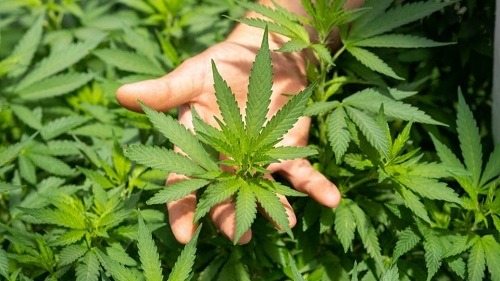
Cannabis Cultivation Market Report Highlights
The market is anticipated to witness significant growth owing to the growing legalization and adoption of hemp and marijuana for the treatment of chronic diseases
The hemp segment dominated the market in 2022, owing to the increasing adoption of hemp and derived products due to low THC content
The industrial consumption segment dominated the market in 2022, owing to the growing application of marijuana and hemp in various industries
In May 2022, Aurora Cannabis Inc. completed the purchase of TerraFarma Inc., which will contribute to their Canadian recreational cannabis company and Aurora's worldwide expertise in the cannabis market
In March 2022, HEXO and Tilray Brands Collaborate to Form Strategic Alliance, Uniting Two Canadian Cannabis Industry Leaders
In December 2021, As part of its continuous development plan, the Company purchased Quebec-based Laurentian Holdings Inc., boosting its presence in Quebec's second-most populated province
For More Details or Sample Copy please visit link @: Cannabis Cultivation Market Report
Furthermore, while the authorities imposed lockdown measures during COVID-19, European consumers hoarded supplies. Between January and March 2020, the value of items sold on Cannazon, a platform for hemp products, reached roughly USD 5.04 million reflecting a volume of 1.6 metric tonnes. In the U.S., a similar increase in sales was observed, with people stockpiling in anticipation of government-mandated shelters. As a result, increased stocks and strong consumer demand, as well as a growth in areas recognizing the product as a necessary commodity for recreational and medical uses, are projected to fuel market expansion throughout the forecast period.
Based on biomass, the hemp segment dominated the market in 2022. Factors contributing to increasing demand include the increasing adoption of hemp and derived products and its growing acceptance among users due to its low THC content. It is mainly used by people who intend to reap the medical benefits of the plant without getting intoxicated. In addition, positive government reforms regarding the utilization of hemp in many countries are further propelling market growth.
In 2022, the industrial consumption segment accounted for the highest revenue share. This growth is attributed to the growing application of marijuana and hemp in various industries such as pharmaceuticals, personal care & cosmetics, nutraceuticals, and food and beverages. In addition, the growing usage of cannabis and its derivatives as raw material by companies to produce their products is further fueling the growth. For instance, CBD oil and tinctures obtained from the plant are used by pharmaceutical companies for the production of cannabis-infused drugs. Hence, its consumption for various applications boosts the overall growth of the market.
Asia Pacific is expected to expand at the fastest CAGR in the forecast period owing to the presence of the largest cultivation markets in the region such as China, South Korea, India, and Australia. Furthermore, favorable climatic conditions, increasing awareness about the plant and its medical benefits, and a growing patient pool eligible for medical marijuana treatments are the other factors boosting the growth of the market in the region.
#CannabisIndustry#CultivationTrends#CannabisFarming#Horticulture#CultivationTechnology#CannabisGrowers#IndoorFarming#OutdoorCultivation#CropManagement#CannabisHarvest
0 notes
Text
Embracing 4/20: The Evolution of Weed Culture
Shaina Tranquilino
April 20, 2024

April 20th, commonly referred to as "4/20," holds a special significance for cannabis enthusiasts around the world. What started as a simple code amongst a group of high school friends in the 1970s has evolved into a global celebration of cannabis culture. From its humble beginnings to its current status as a day of advocacy and awareness, 4/20 has become a symbol of the changing attitudes toward marijuana.
The Origins:
The origins of 4/20 can be traced back to a group of students at San Rafael High School in California in the early 1970s. Legend has it that a group of friends, known as the "Waldos," would meet at 4:20 PM after school to search for a rumored abandoned cannabis crop. Although their search for the hidden stash proved fruitless, the group adopted "4:20" as a code word to refer to smoking marijuana. Over time, the term spread beyond their circle and became synonymous with cannabis culture.
Cultural Significance:
As marijuana laws and attitudes toward the plant have evolved, so too has the significance of 4/20. What was once a clandestine gathering of friends has transformed into a day of celebration and activism. In cities around the world, cannabis enthusiasts gather on April 20th to partake in events ranging from music festivals and smoke-outs to educational seminars and political rallies.
Advocacy and Awareness:
In addition to its celebratory aspects, 4/20 has also become an important platform for advocacy and awareness surrounding cannabis legalization and reform. Activists use the day to highlight the social and economic benefits of legalizing marijuana, as well as to draw attention to the disproportionate impact of drug laws on marginalized communities. Through marches, protests, and educational initiatives, advocates work to change perceptions and promote evidence-based drug policies.
The Cannabis Industry:
The growing acceptance of marijuana has also led to the emergence of a thriving cannabis industry. On 4/20, dispensaries and retailers often offer special promotions and discounts to attract customers. From infused edibles to CBD products, businesses capitalize on the holiday to showcase their offerings and engage with consumers. Additionally, 4/20 serves as a reminder of the economic potential of the cannabis market, with legal sales reaching billions of dollars annually.
Looking Ahead:
As attitudes toward marijuana continue to shift, the future of 4/20 is likely to evolve as well. While the holiday remains a time for celebration and camaraderie among cannabis enthusiasts, it also serves as a reminder of the ongoing struggle for legalization and social justice. As more states and countries move to legalize marijuana, 4/20 may take on new meanings and traditions, but its essence as a symbol of cannabis culture is likely to endure.
4/20 has transcended its origins as a simple code word and has become a global phenomenon that celebrates cannabis culture, advocates for legalization, and fosters community among enthusiasts. Whether you choose to partake in festivities or reflect on the broader implications of marijuana legalization, April 20th serves as a reminder of the ongoing evolution of weed culture and the power of grassroots movements to effect change. Happy 4/20!
#420#CannabisCulture#Legalization#Advocacy#WeedDay#CannabisCommunity#CannabisIndustry#Celebrate420#Activism#GrassrootsMovement#MarijuanaLegalization#Awareness#CannabisAdvocacy#CannabisActivism#CannabisAwareness#pot#weed#cannabis#thc#cbd#weedlife#420life
0 notes
Text
Your Quick Guide to Obtaining a Medical Marijuana Card in Roanoke, VA

As interest in alternative medicine grows, so does the acceptance and use of medicinal cannabis. The process of obtaining a medical marijuana card in Roanoke, VA, has never been more straightforward, thanks to services like Rethink-Rx. This guide will walk you through everything you need to know to get the cheapest and most reliable medical marijuana card in Roanoke, VA.
The Growing Acceptance of Medical Marijuana
According to the World Health Organization (WHO), around 147 million people, nearly 2.5% of the global population, consume marijuana annually. In the United States alone, approximately 22.2 million Americans aged 12 or older reported using cannabis in 2014, with 8.4% using it in the previous month.
Support for legalizing cannabis has significantly increased, especially for the medical use of cannabis. A Gallup poll from October 2016 indicated that 60% of Americans believe cannabis should be legalized. Additionally, a Quinnipiac University poll found that 87% of American voters think U.S. Veterans Administration doctors should be allowed to prescribe marijuana to veterans suffering from Post-Traumatic Stress Disorder (PTSD).
Currently, 38 states in the U.S. have approved cannabis for medicinal use, reflecting its growing acceptance. Despite some lingering controversy, medicinal cannabis represents a revival of a historically significant plant now reemerging in modern healthcare. The FDA is actively reviewing public data regarding the safety, uses and risks of medicinal cannabis, showing the evolving landscape of its use.
The Benefits of Obtaining a Medical Marijuana Card in Roanoke, VA
Obtaining a medical marijuana card in Roanoke, VA, provides numerous benefits. For those fed up with traditional health solutions, medicinal cannabis is a breath of fresh air - a potent, plant-based remedy that's simple to use. The process is designed to be simple, efficient, and supportive, ensuring patients can quickly access the needed treatment.
How to Get Your Medical Marijuana Card in Roanoke, VA
Rethink-Rx has streamlined the process of obtaining a medical marijuana card in Roanoke, VA, making it accessible and hassle-free. By offering easy online appointments with cannabis healthcare specialists, you no longer need to leave the comfort of your home to be evaluated and certified for medical cannabis in Virginia. Here's how you can get started:
Select an Appointment Time: Choose a convenient time for your consultation. Rethink-Rx offers flexible online scheduling to accommodate your needs.
Complete Some Forms: Fill out the necessary forms that we send using your phone or computer. This step is straightforward and ensures your information is ready for the consultation.
Talk with a Doctor: Have a secure telehealth appointment with a board-certified doctor. During this consultation, discuss your medical history and reasons for seeking a medical marijuana card. If approved, you'll receive your medical certificate via email immediately.
Once you have your medical marijuana card, you can start purchasing products at dispensaries without waiting. For those needing a physical card for purposes other than dispensary use, such as employment, Rethink-Rx can assist with that as well.
The Broader Impact and Future of Medical Marijuana
President Biden's recent statement on marijuana reform emphasizes the need to end the incarceration of individuals for marijuana possession, highlighting the disproportionate impact on Black and brown communities. This action aims to alleviate barriers in employment, housing, and education faced by thousands with federal marijuana possession convictions.
Why Choose Rethink-Rx for Your Medical Marijuana Card in Roanoke, VA
When you need a medical marijuana card in Roanoke, VA, Rethink-Rx is the trusted guide that's got your back. They take the tedium out of documentation, letting you swiftly access the papers you need, and get on with your life. From the get-go, Rethink-Rx's board-certified doctors aim to make alternative medicine feel attainable, rather than overwhelming. With their expertise and warmth, you'll find the path to wellness much clearer.
Take the First Step Today
Ready to explore the benefits of medicinal cannabis? Schedule your appointment with Rethink-Rx and take the first step towards obtaining your medical marijuana card in Roanoke, VA. Trust in their expertise and support to guide you through the process, ensuring you can access the treatment you need with ease.
For more information about Medical Marijuana Card In Leesburg and Virginia Medical Marijuanas Card Cost please visit:- ReThink-RX
0 notes
Text
Interesting Facts About Marijuana That You Should Know
Marijuana, also known as cannabis, has a rich history and a variety of interesting facts associated with its cultivation, medicinal uses, cultural significance, and legal status. Here are some intriguing facts about marijuana that you should know:
Ancient Origins: Cannabis has been cultivated by humans for thousands of years, with evidence of its use dating back to ancient civilizations in Asia, Africa, and the Middle East. It has been utilized for medicinal, spiritual, and recreational purposes throughout history.
Medical Uses: Cannabis contains compounds called cannabinoids, including THC (tetrahydrocannabinol) and CBD (cannabidiol), which have therapeutic properties. Medical marijuana is used to alleviate symptoms of various conditions, including chronic pain, nausea, epilepsy, multiple sclerosis, and PTSD.
Legalization Trends: In recent years, there has been a global shift towards the legalization of marijuana for medical and recreational use. As of 2022, many countries and states have legalized cannabis in some form, while others have decriminalized possession or enacted medical marijuana programs.
Cultural Significance: Cannabis has played a significant role in various cultures around the world, often being used in religious ceremonies, rituals, and social gatherings. It has been celebrated in art, literature, music, and film, influencing popular culture and social movements.
Industrial Uses: Hemp, a variety of the cannabis plant, has been cultivated for its fiber, seeds, and oil for industrial purposes. Hemp fibers can be used to make textiles, paper, biodegradable plastics, construction materials, and biofuels, among other products.
Variety of Strains: There are thousands of different cannabis strains, each with its unique characteristics, flavors, aromas, and effects. Strains can be categorized into three main types: indica, sativa, and hybrid, each with distinct properties and effects on the body and mind.
Legalization Impacts: The legalization of marijuana has led to economic opportunities, job creation, tax revenue generation, and the emergence of a regulated cannabis industry. However, it has also raised concerns about public health, safety, underage use, impaired driving, and addiction.
Criminalization History: Marijuana prohibition has roots in the early 20th century, driven by racial prejudice, moral panic, and political agendas. The criminalization of cannabis has disproportionately impacted marginalized communities, leading to social injustice and disparities in law enforcement.
Medical Research: Despite the therapeutic potential of cannabis, scientific research has been limited due to legal restrictions and regulatory barriers. However, there is growing interest and investment in studying the medicinal properties of cannabinoids and their potential applications in treating various health conditions.
Social Stigma: Despite changing attitudes towards marijuana, it remains a stigmatized substance in many societies, associated with stereotypes, misconceptions, and negative perceptions. Efforts to educate the public and reduce stigma are essential for promoting informed dialogue and policy reform.
These facts highlight the complex and multifaceted nature of marijuana, reflecting its historical significance, cultural relevance, medicinal potential, and evolving legal landscape. As attitudes and policies towards cannabis continue to evolve, it is essential to consider a balanced and evidence-based approach to its regulation, use, and impact on society.
0 notes